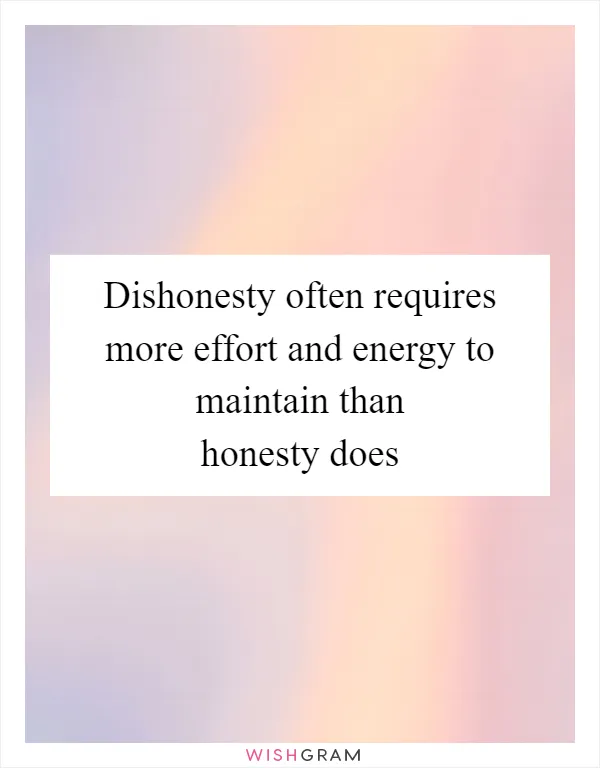Dishonesty often requires more effort and energy to maintain than honesty does
Being dishonest is not as easy as it may seem at first glance. In fact, it often demands more effort and energy to sustain than being honest. When we choose to be dishonest, we create a web of lies that we must constantly remember and uphold. This can be mentally exhausting and emotionally draining.
Think about it this way: when we tell a lie, we need to remember the details of that lie to ensure consistency. We must keep track of who we told the lie to, what we said, and how we said it. This requires a significant amount of mental effort and can be quite stressful. On the other hand, when we are honest, we simply speak the truth without the need to remember fabricated stories.
Furthermore, dishonesty often leads to a cycle of deception. Once we tell one lie, it becomes easier to tell another to cover up the initial falsehood. This can quickly spiral out of control, as each lie requires additional lies to maintain the illusion of truth. Before we know it, we find ourselves entangled in a complex web of deceit that demands constant attention and energy to sustain.
Not only does dishonesty require mental effort, but it also takes an emotional toll. When we are dishonest, we often experience guilt, anxiety, and fear of being caught. These negative emotions can be draining and impact our overall well-being. On the other hand, being honest allows us to live with a clear conscience, free from the burden of guilt and anxiety.
Moreover, dishonesty can strain our relationships with others. When we lie to someone, we risk damaging their trust in us. Rebuilding trust can be a lengthy and challenging process. It requires us to put in extra effort to demonstrate our honesty and reliability. In contrast, being honest from the start helps to foster trust and maintain healthy relationships.
